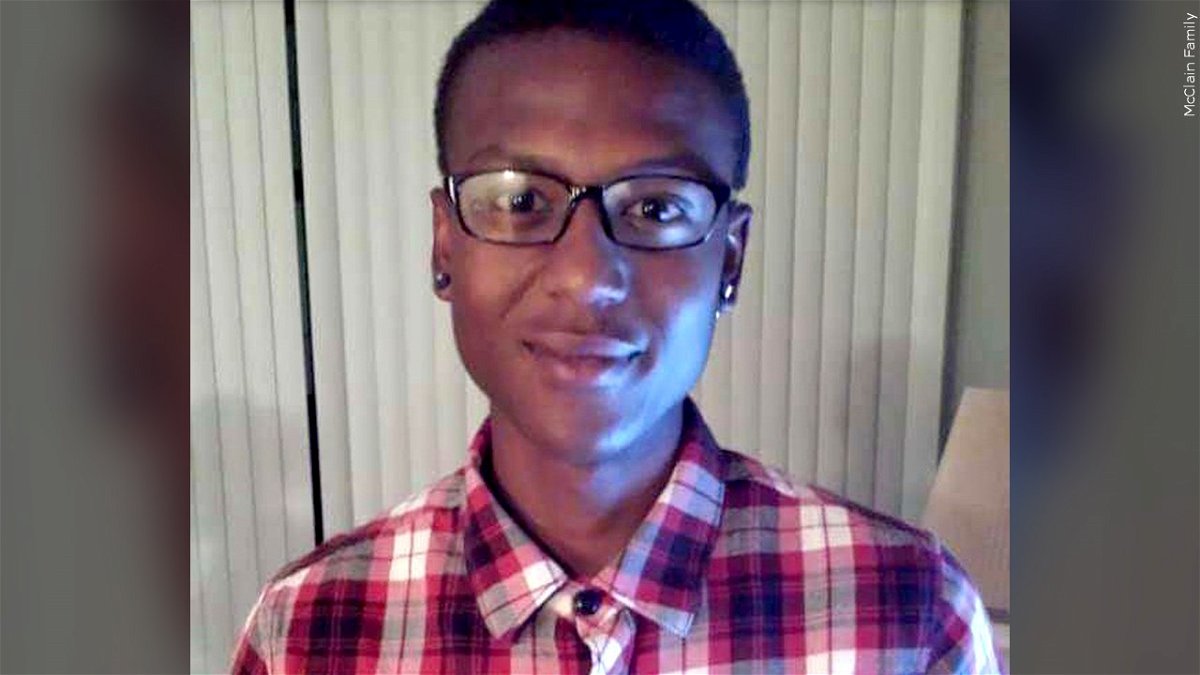Officer who arrested Elijah McClain found not guilty

Originally Published: 06 NOV 23 16:52 ET
Updated: 06 NOV 23 17:35 ET
By Eric Levenson and Andi Babineau, CNN
(CNN) — Aurora, Colorado, police officer Nathan Woodyard was found not guilty by a jury Monday of reckless manslaughter and a lesser-included charge of criminally negligent homicide in the death of Elijah McClain, an unarmed 23-year-old Black man who died after he was subdued by police and injected with ketamine by paramedics in 2019.
Woodyard had pleaded not guilty to charges of reckless manslaughter and criminally negligent homicide in connection with McClain’s death. The officer remains suspended from the department without pay, pending the outcome of the trial.
The charges stem from the arrest of McClain on August 24, 2019, when officers responded to a call about a “suspicious person” wearing a ski mask, according to the indictment. The officers confronted McClain, a massage therapist, musician, and animal lover, who was walking home from a convenience store carrying a plastic bag with iced tea.
In an interaction captured on body camera footage, police wrestled McClain to the ground and placed him in a carotid hold, and paramedics later injected him with the powerful sedative ketamine. He suffered a heart attack on the way to the hospital and was pronounced dead three days later.
Prosecutors initially declined to bring charges, but the case received renewed scrutiny following the nationwide Black Lives Matter protests in the spring of 2020. Colorado Gov. Jared Polis appointed a special prosecutor to reexamine the case, and in 2021 a grand jury indicted Woodyard, two other officers and two paramedics in McClain’s death.
Woodyard’s trial began last month and featured testimony from Aurora law enforcement officers who responded to the scene as well as from doctors who analyzed how McClain died. The jury was deliberating for a second day Monday when they came to a unanimous verdict.
During the 15-day trial, the defense called law enforcement and medical experts, along with Woodyard himself, to testify. Prosecutors argued the officers used excessive force against McClain in the form of two carotid holds. The officers then failed to check his vital signs, even as he threw up in his ski mask and repeatedly said “I can’t breathe,” according to the prosecution.
Dr. Roger Mitchell Jr., a forensic pathologist who reviewed McClain’s autopsy, testified the cause of death was “complications following acute ketamine administration during violent subdual and restraint by law enforcement, emergency response personnel.” He testified there was a “direct causal link” between the officers’ actions and McClain’s death.
However, the defense argued the carotid holds were appropriate because McClain was physically resisting. Defense attorneys also argued there was no evidence the officers’ actions led to his death, and instead placed the blame on the paramedics’ decision to inject McClain with a dose of ketamine too large for his size.
Dr. David Beuther, a pulmonary critical care physician, testified on cross-examination he believed McClain would not have died if the paramedics had recognized his issues and intervened.
Two other officers, Randy Roedema and Jason Rosenblatt, were tried jointly beginning in September. Roedema was found guilty of the lesser-included charges of criminally negligent homicide and third-degree assault. He will be sentenced in January. Rosenblatt was acquitted of all charges.
Two paramedics who treated McClain, Jeremy Cooper and Peter Cichuniec, are set to go on trial in the coming weeks. They have pleaded not guilty. In 2021, the city of Aurora settled a civil rights lawsuit with the McClain family for $15 million, and the Aurora police and fire departments agreed to a consent decree to address a pattern of racial bias found by a state investigation.
The-CNN-Wire
™ & © 2023 Cable News Network, Inc., a Warner Bros. Discovery Company. All rights reserved.



